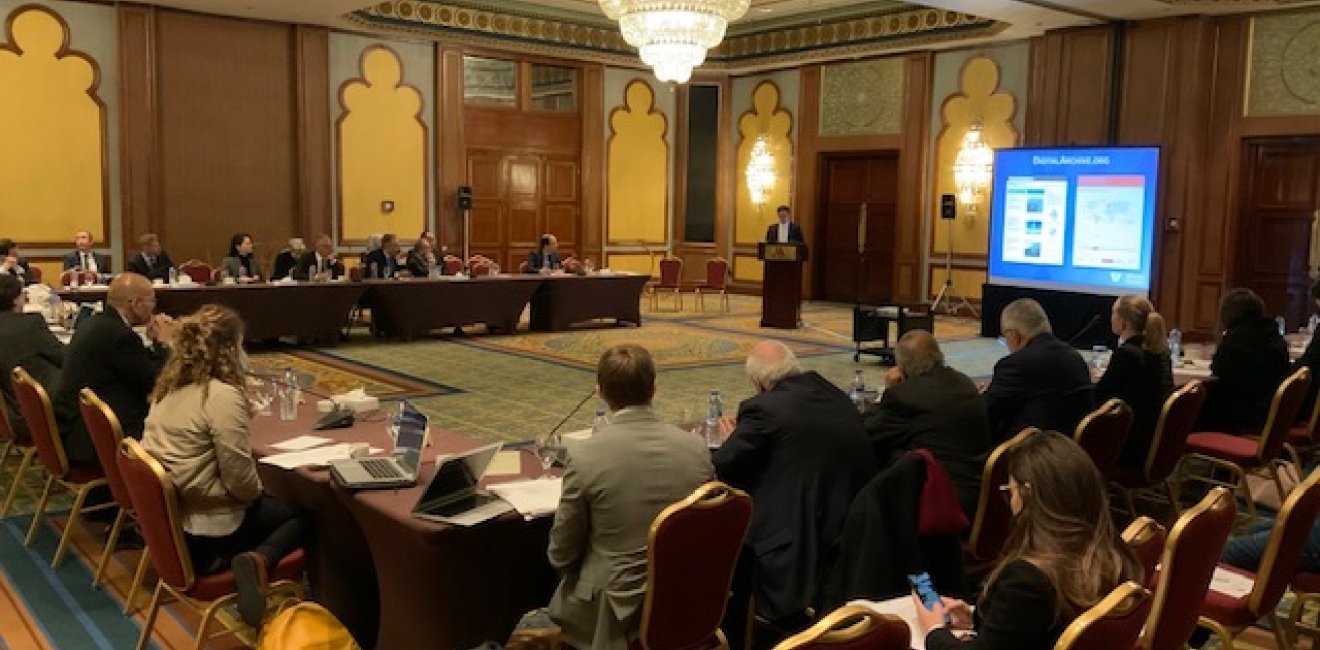Nuclear Policy in the Middle East:
Diplomatic History and Future Prospects
Cairo, Egypt
January 9, 2020
This workshop, organized by the School of Global Affairs and Public Policy (GAPP) at the American University in Cairo, the Department of War Studies at King’s College London, and the History and Public Policy Program at the Woodrow Wilson International Center for Scholars, connected recent academic scholarship and archival research on the evolution of the nuclear age with current nuclear policy questions facing the Middle East and Egypt. In doing so, the workshop fostered a dialogue between international and regional practitioners, academics, and NGO experts focusing on lessons learned from nuclear diplomatic history, and policy implications with respect to the most important questions related to the non-proliferation challenge in the Middle East, and the future of the global non-proliferation regime.
Introduction/Welcoming Remarks
- Ambassador Karim Haggag, Professor of Practice, GAPP
- Dr. Hassan Elbahtimy, Lecturer in Dept. Of War Studies, King’s College London
Session 1: The Renaissance in Nuclear Studies
This session reflected on the status of nuclear studies. Speakers Christian Ostermann, Kian Byrne, and James Hershberg captured the evolving research agenda in the field, the opening up of new primary sources, and the incorporation of new perspectives on the politics of the nuclear age among other topics that frame the current academic debate on nuclear weapons.
- Chair: Dr. Hassan Elbahtimy, Lecturer in Dep. Of War Studies, King’s College London
- Dr. Christian Ostermann, Director of the History and Public Policy Program at the Woodrow Wilson Center: Trends in Nuclear and Cold War History Research
- Mr. Kian Byrne, Program Assistant at the Woodrow Wilson Center: New Digital Resources: Wilson Center Digital Archive
- Dr. James Hershberg, Professor of History and International Affairs, George Washington University: Trends in Nuclear and Cold War History Research
Session 2: Nuclear Diplomatic History: Regional and Global Perspectives
This session reflected on the history of multilateral and regional nuclear diplomacy. It examines some of the key historical and diplomatic milestones and reflects on prior regional efforts to address the nuclear question including in the Arms Control and Regional Security (ACRS) working group under the Madrid Peace process
- Chair: Ambassador Karim Haggag, Professor of Practice, GAPP
- Dr. James Hershberg, Professor of History and International Affairs, George Washington University: Cairo and the Cuban Missile Crisis, 1962
- Dr. Hassan Elbahtimy, Lecturer in Dep. Of War Studies, King’s College London: Nasser, Kennedy & Regional Nuclear Diplomacy 1960-1963
- Ambassador Aly Erfan, Professor of Practice, GAPP: The Record and Relevance of the Arms Control and Regional Security (ACRS) Process
- Dr. Hebatallah Taha, Postdoctoral Researcher, Sciences Po: The Arms Control and Regional Security (ACRS) Process and the Making of a New ‘Peace Economy’
Session 3: Challenges and Prospects for a WMD-Free Zone in the Middle East
This session addressed current debates about nuclear policy in the region and focused on on-going efforts to establish a zone free from weapons of mass destruction in the Middle East.
- Chair: Ambassador Mohamed Anis Salem
- Dr. Ryan Musto, Stanton Nuclear Security Fellow, Security Studies Program, MIT: Origins of NWFZ Concept in Historical Perspective
- Minister Plenipotentiary Ahmed El Fadly, Director, Disarmament Affairs & Peaceful Uses of Nuclear Energy: Next Steps in Nuclear Diplomacy on the Middle East WMD-Free Zone Initiative
Keynote Address
Ambassador Zahran addressed the issues that faced the original signing of the Non-Proliferation Treaty and those that face the upcoming 2020 Review Conference, as well as his own recommendations for how to approach the renewal of the treaty.
- Ambassador Dr. Mounir Zahran, Egyptian Council on Foreign Affairs: The Middle East WMD-Free Zone and the NPT: Egypt’s Perspective
Closing Remarks
- Ambassador Karim Haggag, Professor of Practice, GAPP
- Dr. Hassan Elbahtimy, Lecturer in Dep. Of War Studies, King’s College London





